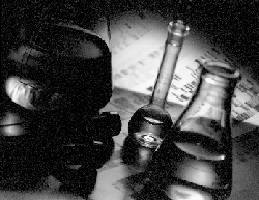NeoStem, a New York adult stem cell company that has partnered with the Vatican to increase awareness about adult stem cells, has been awarded two grants from the National Institutes of Health (NIH) to continue their work.
NeoStem works with what they call VSELs (Very Small Embryonic Like Cells) which are adult cells found in the bone marrow that seem to be pluripotent, or able to become most or all of the cell types in the body.
 One of the grants is to study the effect VSELs have on skin wounds in mice that mimic symptoms of scleroderma. Scleroderma is an auto immune disorder that attacks the skin and other organs making them harden. Over 300,000 Americans live with scleroderma. From the NeoStem press release:
One of the grants is to study the effect VSELs have on skin wounds in mice that mimic symptoms of scleroderma. Scleroderma is an auto immune disorder that attacks the skin and other organs making them harden. Over 300,000 Americans live with scleroderma. From the NeoStem press release:
NeoStem, Inc., a leader in the emerging cellular therapy industry, today announced that it has received an award under the Small Business Innovative Research Program (“SBIR”) of $147,765 for the “Development of Adult Pluripotent Very Small Embryonic Like (VSEL) Stem Cells to Treat Skin Wounds in Scleroderma” from the National Institutes of Health, National Institute of Arthritis and Musculoskeletal and Skin Diseases (“NIH-NIAMS”). This award will fund studies to investigate the potential of very small embryonic-like stem cells (“VSELs™”) in treating difficult to heal wounds in an animal model of scleroderma. The grant will support research to be headed by Denis O. Rodgerson, Ph.D., Director of Grants and Academic Liaison of NeoStem, and Dr. Vincent Falanga, M.D., The Barbara A. Gilchrest Professor of Dermatology and Professor of Biochemistry at the Boston University School of Medicine.
The study will employ the tight skin (“Tsk”) mouse to test the potential wound healing capabilities of autologous VSELs™ in treating difficult to heal skin ulcers in this disease. The Tsk mouse carries a heterogeneous mutation for the fibrillin-1 gene and rapidly exhibits the characteristic tight and thickened skin phenotype of scleroderma patients. Depending on the results of the study, the Company may quality for up to an additional $1.5 million phase 2 grant for the indication from NIH-NIAMS.
Their second grant is for $1,221,854 over two years to continue a NIH-approved clinical trial to study whether VSELs can regenerate bone lost due to periodontitis, a serious gum infection. From their press release:
NeoStem, Inc., an emerging leader in the fast growing cell therapy industry, today announced that it has been awarded funds for the second year of a two year grant totaling $1,221,854 for “Repair of Bone Defects with Human Autologous Pluripotent Very Small Embryonic-Like Stem Cells (VSEL),” from the National Institute of Dental & Craniofacial Research (“NIDCR”), a division of the National Institutes of Health (“NIH”). This peer reviewed grant is to support a Phase 2 investigation and first approved NIH clinical study of VSELs™ in humans. Enrollment for this study is expected to begin in 2014.
CLICK LIKE IF YOU’RE PRO-LIFE!
VSEL™ Technology, an autologous therapy derived from a patient’s own stem cells, is being developed for use in the regeneration of bone tissue damaged by periodontitis. The Phase 2 trial will be managed by Denis O. Rodgerson, Ph.D., Director of Grants and Academic Liaison for NeoStem, in collaboration with co-investigators Drs. Russell Taichman and Laurie McCauley of the University of Michigan.
In April of this year, the Vatican hosted an adult stem cell conference which was a collaboration between NeoStem, the Pontifical Council for Culture, STOQ International, a non-profit that encourages dialogue between Church and culture, and The Stem for Life Foundation, a non-profit dedicated to spreading the good news about adult stem cells.







